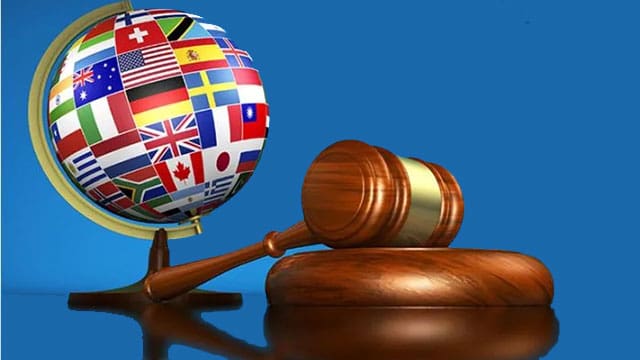Powerful nations are undermining international law, leading to global injustice and the erosion of human rights enforcement

For interview requests, click here
The years between 1945 and 1949 were a golden age for human rights. As people reflected on the Holocaust and the devastation of the Second World War, they recognized the importance of a system of international law to prevent such catastrophes from happening again. This period saw the adoption of the Genocide Convention and the Universal Declaration of Human Rights, along with updates to the Geneva Conventions defining war crimes.
It soon became clear, however, that powerful countries and individuals had no intention of being held accountable to these ideals. They continued to act with impunity, and millions of people were killed.
There was another moment of hope as the Cold War ended in the early 1990s. But again, world leaders—especially those in the so-called First World—failed to seize the opportunity to build a peaceful world. Instead, they fuelled further death and destruction, and no force on Earth could consistently hold them accountable.
 As world powers defy international law, global order and human rights are at risk. |
| Recommended |
| Court Challenges Program under fire for alleged progressive bias
|
| Governments lie. Leaders fail. Start thinking for yourself
|
| Exploring the origin of women’s lack of rights in Islam
|
Nonetheless, efforts were made to build a system of accountability to enforce international law. While the International Court of Justice had long been established to hold states accountable, there was no way to try individuals until the International Criminal Court (ICC) was established in the early 2000s. Many powerful countries—including the United States, Russia and China—refused to ratify the agreement that established the ICC. As a result, their citizens are not bound by its rulings unless they visit a signatory nation, such as Canada. Even worse, the U.S. government has announced that it will not only ignore ICC rulings but will also impose sanctions on ICC officials involved in cases against its nationals or allies.
Anyone who has ever played sports knows that if the rules of the game are not fairly enforced, chaos ensues.
Many fail to recognize that the U.S. is not the country it used to be. American military specialist and Trump supporter Col. Douglas Macgregor has pointed out: “If you go back through history and you look at leaders of great powers, much like Donald Trump, they have a bad habit of overestimating their own capabilities, underestimating the capabilities of other potential adversaries and exceeding the limits of their power. Right now, that is exactly what President Trump is doing. He is dangerously exceeding the limits of American power and influence, and he is doing it in a way that is very harmful to us.”
Today, the world looks like a collection of nations acting without regard for consequences. Unlike children, however, many of these countries have arsenals of deadly weapons they seem willing to use. If they choose to violate international law, enforcement is inconsistent at best. This reality weakens the global order, increasing instability. In war, there are no predictable outcomes.
It is perfectly legitimate to criticize the current system of international law, but rejecting it entirely is extremely dangerous. No legal system is perfect, but laws evolve as they are challenged in court. Every human rights advocate understands this.
Why, then, does the U.S. so strongly object to the ICC? Why don’t figures like Benjamin Netanyahu and Vladimir Putin—both facing ICC arrest warrants—turn themselves over to the court? If they are innocent, they have nothing to fear.
With the breakdown of the international balance of power and the real potential for global chaos, respect for the rule of law is our best assurance of safety for all people, in all countries. None of us is free until we are all free, and none of us is safe until we are all safe.
Now more than ever, we must recognize the importance of law. It does not matter who our ally is—nothing is more important than moral consistency in the application of our laws, especially when alleged violations relate to war crimes, genocide and other crimes against humanity.
Gerry Chidiac specializes in languages and genocide studies and works with at-risk students. He received an award from the Vancouver Holocaust Education Centre for excellence in teaching about the Holocaust.
Explore more on Holocaust, Human Rights, Antisemitism, Terrorism
The views, opinions, and positions expressed by our columnists and contributors are solely their own and do not necessarily reflect those of our publication.
Troy Media is dedicated to empowering Canadian community news outlets by providing independent, insightful analysis and commentary. Our mission is to support local media in fostering an informed and engaged public by delivering reliable content that strengthens community connections, enriches national conversations, and helps Canadians better understand one another.
